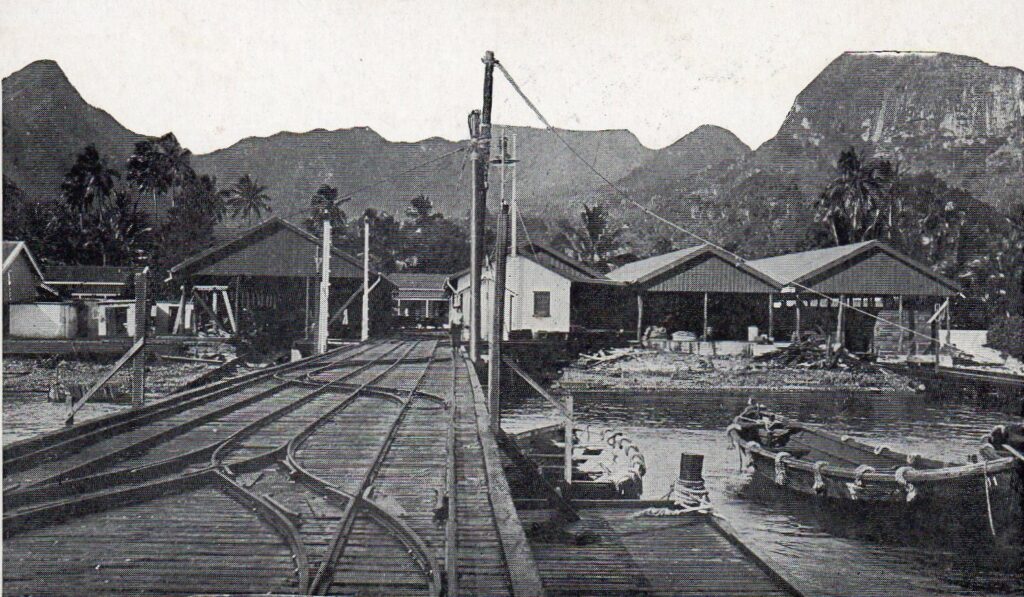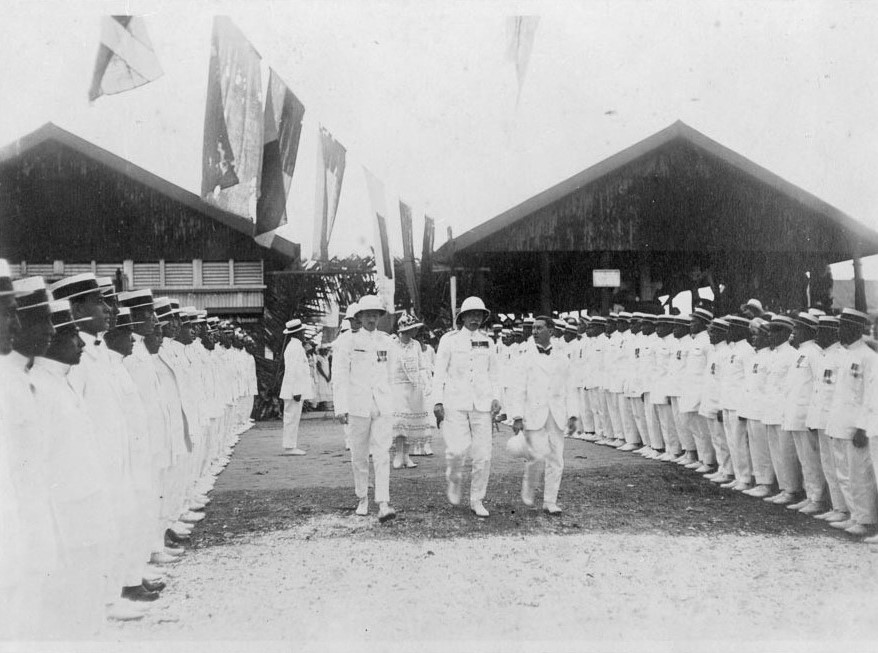A year of ‘marked progress’
Saturday 31 December 2022 | Written by Cameron Scott | Published in Features, Memory Lane

Sir Maui Pomare served as Minister of the Cook Islands from 1912 to 1928. P/C Wikipedia 22123015
A memorandum presented to the Houses of the General Assembly in New Zealand by the Minister for the Cook Islands, Maui Pomare (he had yet to receive his knighthood), gives a fascinating insight into life on Rarotonga back in 1923. A trained doctor, Pomare presented the report following his first visit to the Cook Islands for almost five years, noting the changes that had taken place since his earlier visit.
He wrote: It was my privilege and pleasure to pay a long-deferred visit to Rarotonga towards the end of last year.
Five weeks were spent in the Group, and during this period I availed myself of an opportunity to visit the Island of Aitutaki. Unfortunately, it was not possible in the time and with the facilities at my disposal to call at any other of the outer islands.
‘These youths show great aptitude for the work, and give every promise of making successful operators.’
This was my first visit to the Cook Islands after an interval of nearly five years. I was received with the greatest cordiality by the Native and European residents, and was most hospitably entertained by them.
I found the utmost good will and harmony existing between the Administration and all sections of the people, and ample evidence of a warm regard and attachment for New Zealand. The trade of the Group was well maintained during the year, and only fell short of the total for the preceding period by about £2,000 ($4000), but as compared with last year the balance of trade was against the Islands.

Administratively, the year has been one of marked progress. The facilities for handling the trade of the port of Avarua have been greatly improved. The Administration is indebted to the naval authorities for a detailed survey of the roadstead, which was carried out by Lieutenant RK Dickson, RN, and a party from HM Veronica.
The old wooden jetty has been replaced by a fine ferro-concrete wharf, which is longer and in every way more convenient for loading and discharging cargo than the old structure. It was my privilege to drive the first pile.
A new ferro-concrete slipway has also been provided for handling the launches and lighters when the latter are being overhauled and repaired. These works were carried out to the entire satisfaction of the Administration by the Union Steamship Company.
A powerful light has also been installed on the wireless mast at Aorangi, and is proving a boon to shipping in enabling them to pick up their bearings when approaching the island. While at Rarotonga, I considered and approved a scheme of education for the islands of the Northern Cook Group submitted by the representative of the London Missionary Society.

A vote of £500 ($1000) will be found on the estimates of the Cook Islands Department, and for this subsidy the, London Missionary' Society will provide trained full-time Native teachers, will observe our school hours and holidays, will adopt our syllabus, and will agree to the schools being open at all times for inspection by any duly appointed Administration official. The instruction will, of course, be given in the vernacular.
We have thus linked up the last of New Zealand’s Pacific territories with the Dominion’s education system. Authority has been given for an out-patients’ department to be built in the hospital grounds and for other substantial improvements to be carried out in the hospital building.
The refrigerating plant and cool store were provided about four years ago are inadequate to meet the present-day requirements of the community. They are being improved and enlarged to cope with all demands.
The provision of cool storage has added greatly to the health and comfort of the residents.
Last year I referred to the serious handicap which has been imposed on trade with the more important islands of the Lower Cook Group, owing to the lack of means of quick communication, and I expressed the hope that this disability would be removed in the case of Aitutaki and Mangaia during this season.
I am glad to say that at the present, time our experts are engaged in equipping these islands with, wireless installations, and that communication has already been established with the former. Those stations will work with the Rarotonga radio, and will be operated by Rarotongan scholarship pupils who were brought from St. Stephen's College for Maori Boys, Auckland, after gaining their proficiency certificates and trained at the Wellington Wireless College by the Cook Islands Department.
These youths show great aptitude for the work, and give every promise of making successful operators. If this experiment proves the success that I anticipate, a new and most interesting career will be opened for the youth of the Cook Islands.
The installation of these wireless plants at Aitutaki and Mangaia should help to greatly lessen the loss of fruit cargoes which have been occasioned in the past, owing to the absence of reliable advice as to the movements of cargo-steamers through the Group.
It is also gratifying to me to be able to report that after many attempts, we have succeeded in arranging for a steamer to maintain the service between Auckland and Nine Island. The SS “Rama” made her first trip in April, and will make such further voyages during the season as may be necessary.
Needless to say, the arrival of a steamer proved, a most welcome; surprise to the islanders. I am sure we can rely on the latter to do their utmost by increasing production to ensure the continuance of a steamer in the trade.
The loss of still another contract auxiliary schooner, the “Kaeo,” towards the end of last year again emphasised the urgent need for replacing this type of vessel with a well-found steamer.
We were fortunate in having the Samoan Administration's steamer, the “Lady Roberts”, available to make an emergency trip between Apia and Niue on that occasion.
The isolation of Niue Island will be further greatly diminished by the installation of a radio telephone equipment this year. The apparatus has been thoroughly tested and proved by the experts of the Post and Telegraph Department in the Dominion, and is now in course of erection at Niue.
The new station will work through the Apia radio, and the latter is being provided with the; necessary transmitting gear to enable conversation to be maintained between the two territories.
M Pomare, Minister for the Cook Islands.
Added to Pomare’s account of his visit was the report of the Cook Islands Administration in Rarotonga, dated April 14, 1924. Revenue for the year amounted to £19,137 7s – about $39,000, not adjusted for inflation. Expenditure was £18,430 18s. 4d (about $37,000) leaving a margin of £706 9s 6d (approximately $14,000). “The Revenue and Expenditure Accounts are set out hereunder, from which it will be seen that the year's operations resulted in a cash credit balance of £3,509 3s.11d (about $7000).” the report said.
Papers Past/Cameron Scott












































